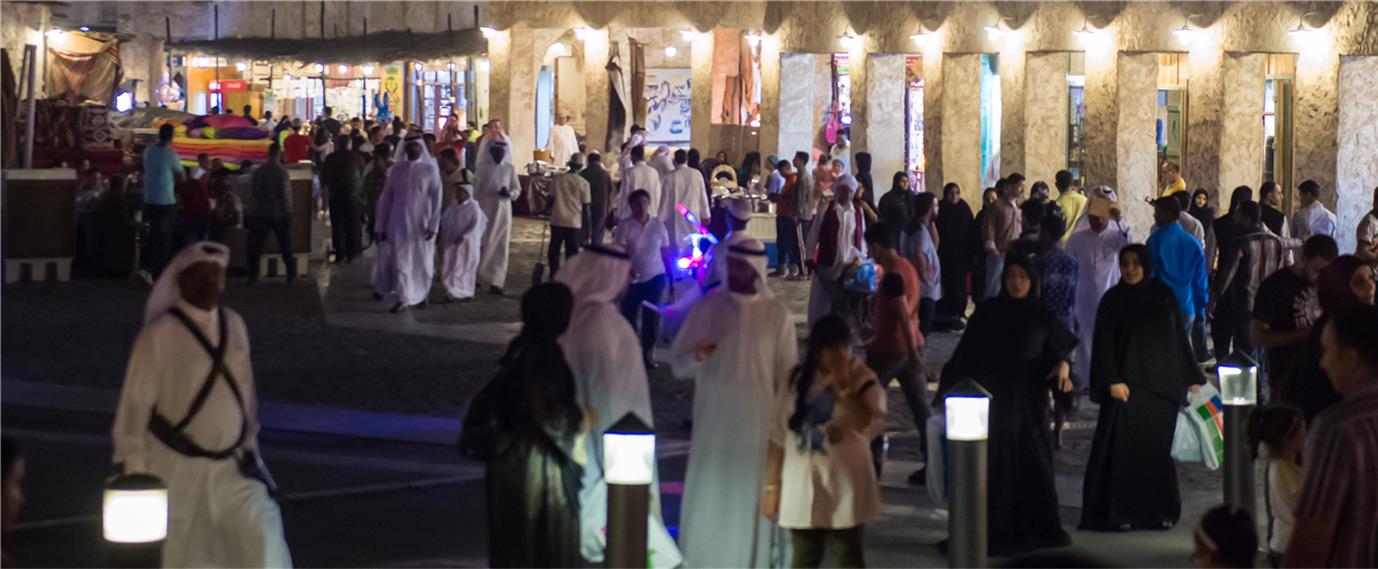الإعلام الذي يلعب دوراً في دفع أطراف نزاعٍ ما إلى طاولة الحوار، هو ذاته الذي يزيد اشتعال النار في أطراف الدوائر التي تقف في مواجهة بعضها جرَّاء مواقف مختلفة. القضية هنا بعيداً عن أخلاقيَّتها، إنها اصطفاف أذرع إعلامية لا تقل في كارثيَّتها عن الأجنحة العسكرية التي تستخدمها جهات ما لدعم موقفها.
إنه أمرٌ دُبِّرَ بلَيل، عشية اختراق وكالة الأنباء القطرية الرسمية، فُتِحت جبهات إطلاق النار بأحرف أبجدية مدروسة، ضيوفٌ جاهزون وعناوين تحمل في تراكيبها مقولات متعددة، كان واضحاً من البداية أن الباب قد كُسِرَ تماماً أمام فتنة نائمة، صمتَ القطريون حيناً أمام تداعيات الانهيار، صمتَ المراقب لما قد يحدث –رغم النفي القطري لتصريحاتٍ لم تكن في الأصل- زادت وتيرةُ العناوين المبنية في جوهرها على ما يشبِهُ سقطةً أخلاقية لهذه القنوات ليلة فشل الانقلاب في تركيا.
تناقلوا في تلك الليلة أنباء مثيرة متسارعة عن مصادر نبتت في غرف الأخبار المظلمة، تشبه في حدَّتِها وفانتازيَّتها شخصية سعود بن ناصر التي قدَّمته صحيفة الحياة السعودية بوصفه المخلِّص الغائب الحاضر دوماً، صاحب الصولات والجولات والعلاقات الأخطبوطية في بنية الدولة في قطر، هكذا بدأت وسائل إعلام الطرف الآخر تبني أنباءها على جُمَلٍ متقطِّعة، لا يربطها إلى أرض الواقع إلا صور قيل إنها لمحلات تجارية فرغت في الدوحة نتيجة هجوم العباد على ما في البلاد!
لم يتأخر الإعلان عن تنسيقية جبهة تحرير قطر كثيراً، عبر صحيفة البيان الإماراتية نقلاً عن وسائل إعلام مصرية. جاء الخبر بصورة إعلان عام عن الإطاحة بالحكم القطري وتشكيل مجلس أعلى لإدارة البلاد.. فانتازيا التاريخ هنا تجتمع بصورة دراما رخيصة من السفَهِ بمكان الالتفات لما تقول. بدا واضحاً أن السياسات التحريرية كانت مشحونة تماماً على شكل تغطيات مفتوحة على كل الضيوف إلا من يدافِع عن قطر، برامج حوارية أُتِيَ بضيوفِها من عواصم العالم المختلفة للهجوم على الدوحة.
درسنا في الصحافة أن الخبر يجب أن يشتمل على إجابات شافية لأسئلة خمسة، أين، كيف، متى، ماذا، مَن؟.. كانت الأسئلة موجودة وإجاباتها مفتوحة الاحتمالات على تصعيد من كل اتجاه، فحضرَت أشياء عند صانعي الأخبار وغابت أشياء كثيرة، غابت قواعد وأصول العمل الصحفي الذي يقوم في جوهره على الأخلاق، ما يثير الشفقة حقاً عرضٌ شاملٌ لتواريخ ماضية شهدَت فيها قناة الجزيرة مع مطلع هذا القرن إغلاق مكاتبها في الأردن ومصر والجزائر وغيرها، عارضو هذه الأخبار وناقلوها كان أغلبهم يعمل في قناة الجزيرة في تلك الفترة، هم الذين اعتبروا إغلاق تلك المكاتب فخراً لأنها عارضت فرض الرأي الواحد على الشارع العربي، تخندقوا اليوم في أماكنَ أخرى، انتهجوا العداء فيها للمؤسسة التي منحتهم الفرصة الحلُم حينها لملايين من شباب العالم العربي.. معادلة أخلاقية بالدرجة الأولى قبل أن تتعلق بمبادئ وشرف مهنة الصحافة، نحنُ هنا لا نعلِّم الناسَ ما يكونُ وما لا يكون، لكلٍّ الحق في قول ما يريد، لكن تلك الحرية يجب أن تتوقف عند حدود شرف الأخلاق.
قبل الإعلان الرسمي عن قطع العلاقات الدبلوماسية، بدأت حملة شعواء لتصدير الأزمة خارج الخليج العربي، تصدير الأزمة يعني في علم الإعلام العام خلق مجموعات ضغط ومراكز قوى غير مفصلية في الحدث الرئيس.. هكذا انشغلت عواصم العالم أجمع بما يحدث، لتبدأ حملة أكثر عداء قامت على منح منابر لضيوف على قنوات إخبارية ناطقة بالعربية، مهمَّتهم الرئيسية في ذلك الظهور تشجيع الشعب القطري على العصيان والتمرد، مسارٌ لم يبتعد كثيراً في نقطة انطلاقِه عن السعي الحثيث لشيطنة الدوحة من خلال ربطها بحركات المقاومة والإسلام السياسي.
هكذا بدأت لعبة صناعة الخبر وترويجه وتصديره تدخل وتخرج في ذات الوقت من دوائر صغيرة مبنية في أصلها على التلويح بالعصا الخارجية لترسيخ الصورة المتخيلة ونبذ الصورة الحقيقية القائمة على انحياز قطر لثورات الربيع العربي ودفاعها عنها، العلاقة هنا بين المنظومة الإعلامية ومنظومة القيم الاجتماعية والأخلاقية علاقة متداخلة، على اعتبار أن وسائل الاعلام هي الناقل لأنماط التفكير والمعرفة والقيم، وبالتالي فهي تساهم في إيجاد جانب كبير من الثقافة الاجتماعية، وهو ما يعطيها أحقيتها كسلطة إعلامية في إدارة وتوجيه المجتمع على ألا تكذب أو تزوِّر، فالتعبئة الشعبية التي قامت بها أجهزة إعلامية تابعةٌ لخالقي الأزمة في الخليج العربي دفَعَت بأجهزةٍ رسمية أخرى في ذات الدُول المعنية بالإعلان عن عقوبات تصل للسجن والغرامة المالية لمَن يتعاطف مع قطر، وكأنَّ الدوحة هي مَن تحتلُّ جُزراً ثلاثاً في مياه الخليج، وهي ذاتها من تدعم فلول أنظمة ديكتاتورية سقَطَت بإرادة شعبية!.








































